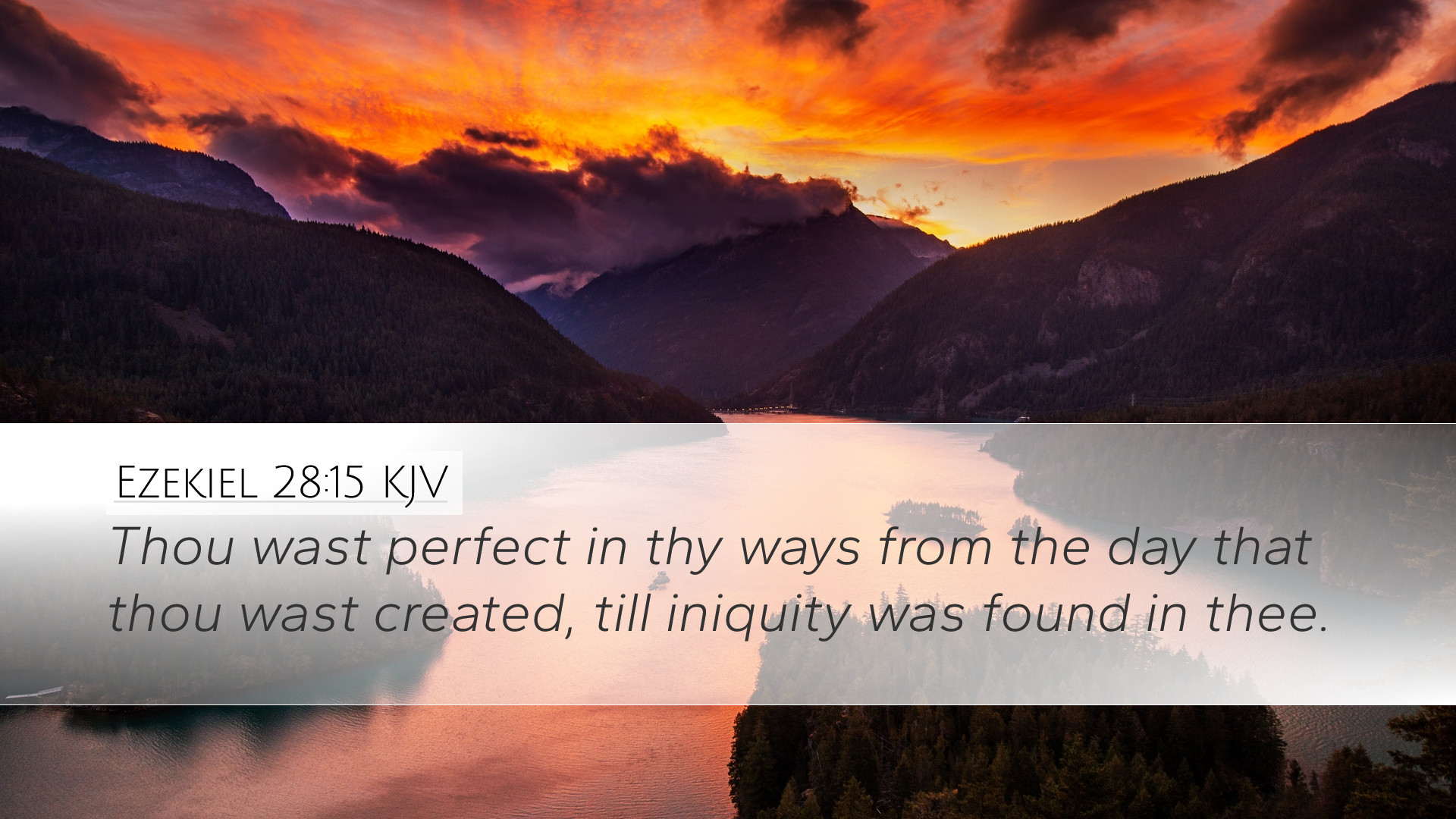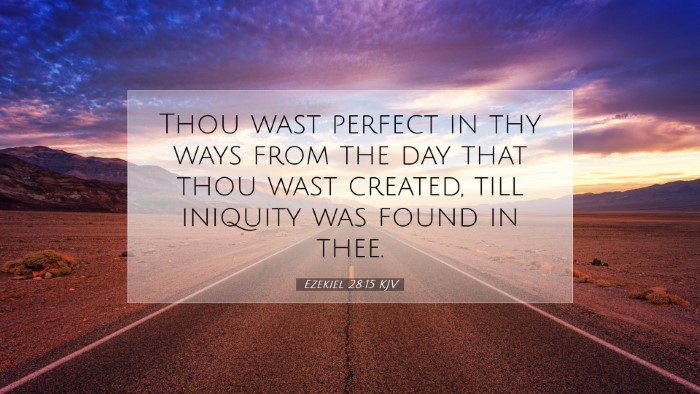Ezekiel 28:15 Commentary
Bible Verse: "You were blameless in your ways from the day you were created till wickedness was found in you." (Ezekiel 28:15)
Introduction
This verse is a key part of Ezekiel’s prophecy against the king of Tyre, which extends metaphorically to the narrative of Satan’s fall. The description of a being created as "blameless" and how corruption entered points to the nature of free will and the tragic fall that follows rebellion against God. The commentaries by Matthew Henry, Albert Barnes, and Adam Clarke provide a rich depth of insight into the theological implications of this verse.
Contextual Overview
Ezekiel 28 speaks specifically to the pride and downfall of the king of Tyre, yet it also reflects broader themes applicable to all creation, especially regarding the adversary's original state. Understanding the historical context of Tyre, as well as the literary structure of the passage, aids in grasping the fullness of Ezekiel’s message.
Historical Context
Tyre was a prosperous city with significant political and economic influence during its height. The king of Tyre, often viewed as being proud and self-sufficient, is depicted by Ezekiel as having a fall akin to that described in Isaiah 14:12-15, suggesting a parallel between earthly kings and cosmic powers.
Theological Insights
Several key theological themes emerge from Ezekiel 28:15.
The Nature of Creation
Matthew Henry emphasizes that the verse illustrates a fundamental principle in biblical theology: God creates all things good. The king (and by extension, Satan) was originally created without fault, showcasing the inherent goodness instilled by the Creator.
The Introduction of Wickedness
Albert Barnes notes the transition from a state of innocence to one of sin. The phrase “till wickedness was found in you” denotes a critical moment where free will led to the choice of rebellion. This bears significance in understanding humanity's own capacity for corruption, as sin finds its root in choice rather than in a created nature.
The Fall from Grace
Adam Clarke elaborates on the consequences of pride and sin. The term “wickedness” implies a turning away from God’s intended purpose. This fall is not only historical but also allegorical for any believer’s spiritual journey, where the choice to turn from God leads to spiritual death. The spiritual implications of this narrative reflect on both personal and corporate levels.
Practical Applications
As we analyze Ezekiel 28:15, there are several applications that can inform the faith and practice of Christians today.
- Understanding of Pride: The passage serves as a cautionary reminder of the perils of pride. Just as the king of Tyre succumbed to arrogance, so too are believers called to guard against it.
- The Call to Humility: There is a collective call for humility in leadership and personal life, echoing the need for constant reliance on grace rather than self-sufficiency.
- The Recognition of Sin: Acknowledging the potential for wickedness within each individual prompts a response of repentance and seeking the holiness of God.
- Hope in Restoration: While the passage describes judgment, it also points to the hope of restoration through Jesus Christ, who reverses the effects of the fall and restores the blameless nature initially intended by God.
Conclusion
In Ezekiel 28:15, we find a profound statement regarding the nature of creation, sin, and the consequences of forsaking the divine purpose. Insights drawn from the commentaries of Matthew Henry, Albert Barnes, and Adam Clarke reveal layers of meaning that transcend the historical narrative concerning Tyre. As we reflect on this verse, may it lead us to greater humility, vigilance against pride, and a deeper appreciation for the grace that redeems us from our fallen state.


